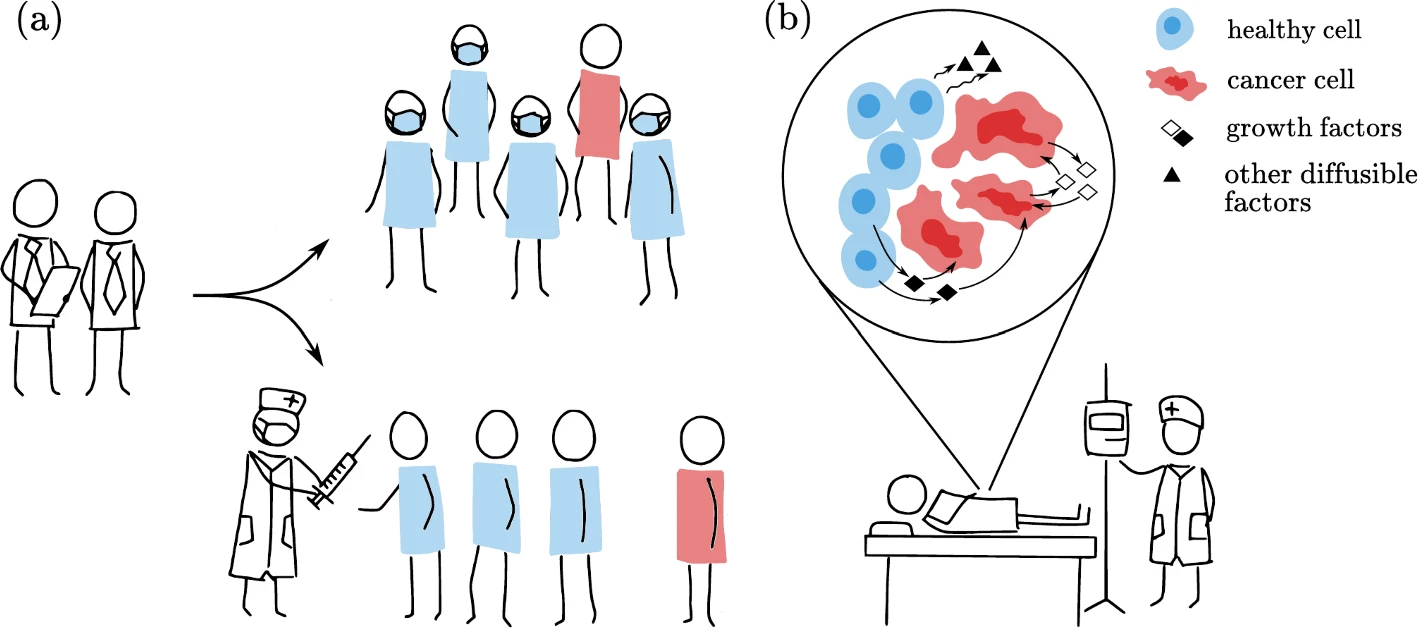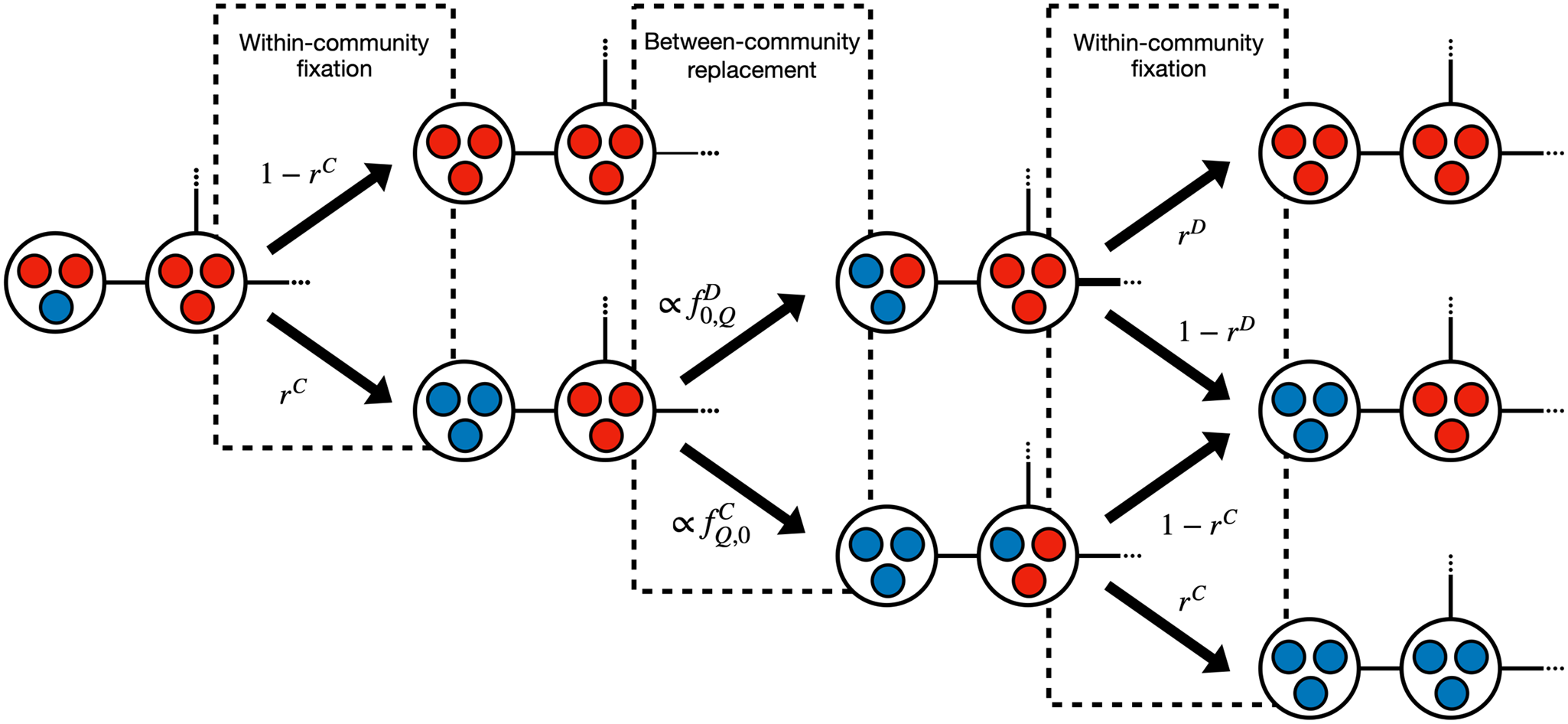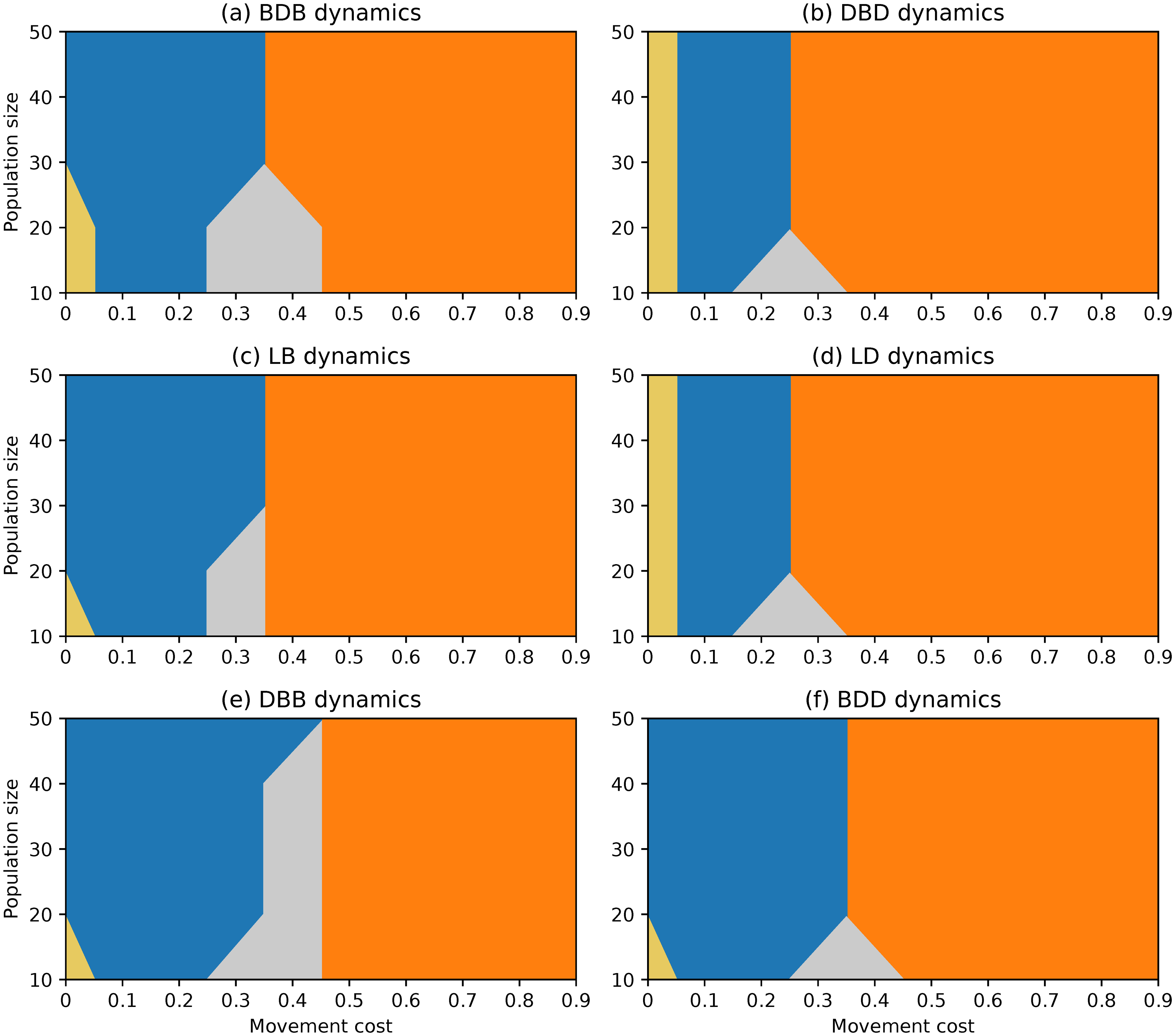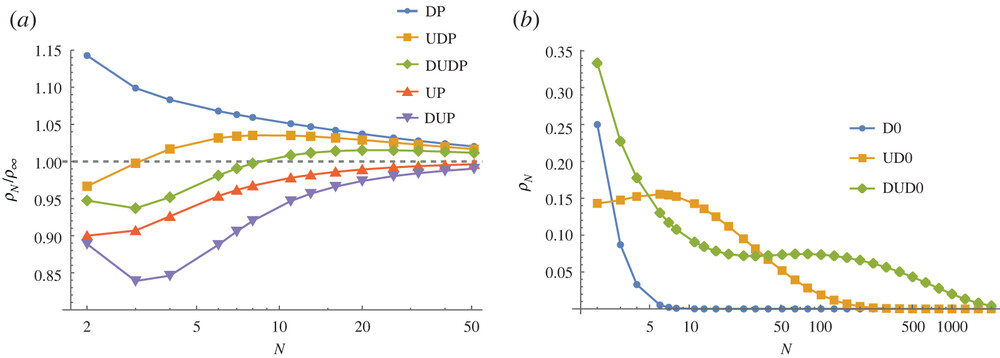Publications
Here is a list of some of my recent publications.
Published:
- Self-organisation of common goods usage and an application to Internet services
PNAS Nexus, Volume 4, Issue 12, pgaf374
Diogo L. Pires, Vincenzo Mancuso, Paolo Castagno, Marco Ajmone Marsan

Natural and human-made common goods present key challenges due to their susceptibility to degradation, overuse, and congestion. We propose a simple usage strategy for individuals with different commons available to them, inspired by observed behaviour: use the same resource while satisfied, shift to a different one when dissatisfied. This remarkably simple and fully distributed strategy leads to a successful distribution of the users over the available resources, avoiding disproportionate usage. Our findings provide theoretical insights into the distribution of usage of land and other natural resources as well as applicable solutions for managing socio-technical commons that address the question resorting to decentralised governance rather than control-oriented policies.
(link) (pdf)
- Public Goods Games in Disease Evolution and Spread (2025)
Dynamic Games and Applications 15, 1733–1749
Christo Morison, Małgorzata Fic, Thomas Marcou, Javad Mohamadichamgavi, Javier Redondo Antón, Golsa Sayyar, Alexander Stein, Frank Bastian, Hana Krakovská, Nandakishor Krishnan, Diogo L. Pires, Mohammadreza Satouri, Frederik J. Thomsen, Kausutua Tjikundi, Wajid Ali

Reviews PGGs arising in modelling of cancer evolution and the spread of infectious diseases. We propose that applications of evolutionary game theory to decision-making in cancer, such as interactions between a clinician and a tumour (b), can learn from the PGGs studied in epidemiology, where cooperative behaviours such as quarantine and vaccination compliance have been more thoroughly investigated (a).
(link) (pdf)
- The rules of multiplayer cooperation in networks of communities (2024)
PLoS Computational Biology 20(8): e1012388
Diogo L. Pires, Mark Broom

We derive rules for multiplayer cooperation in networks of communities under social dilemmas caracterizing different types of social behaviour. Community organization is a solid mechanism for sustaining the evolution of multiplayer cooperation, particularly in populations with a higher number of smaller communities. The success of cooperation is a result of the benefits shared amongst communal cooperators outperforming the benefits reaped by defectors in mixed communities.
(link) (pdf)
- Network topology and movement cost, not updating mechanism, determine the evolution of cooperation in mobile structured populations (2023)
PLoS ONE 18(8). e0289366
Diogo L. Pires, Igor V. Erovenko, Mark Broom

Investigates the evolution of multiplayer cooperation in mobile structured populations, where individuals move strategically on networks and interact with those they meet in groups of variable size. Group-dependent movement erases the locality of interactions and leads to assortative behaviour that is much more powerful in promoting cooperation than fixed population structure. Cooperation robustly co-evolves with movement on complete and circle networks for six different evolutionary dynamics (in figure).
(link) (pdf)
- More can be better: An analysis of single-mutant fixation probability functions under 2×2 games (2022)
Proceedings of the Royal Society A: Mathematical, Physical and Engineering Sciences. 4782022057720220577
Diogo L. Pires, Mark Broom

We study 2×2 games in well-mixed finite populations by analyzing the fixation probabilities of single mutants as functions of population size. We show that fixation functions showed increasing regions under 12 distinct anti-coordination, coordination and dominance games. Perhaps counter-intuitively, this establishes that single-mutant strategies often benefit from being in larger populations.
(link) (pdf)
Preprints:
- Introduction to python-TRMbeta (2025)
GitHub: TRMbeta
Diogo L. Pires
(link) (pdf)
- A 72h exploration of the co-evolution of food insecurity and international migration (2024)
arXiv:2407.03117
Duncan Cassells, Lorenzo Costantini, Ariel Flint Ashery, Shreyas Gadge, Diogo L. Pires, Miguel Á. Sánchez-Cortés, Arnaldo Santoro, Elisa Omodei
(link) (pdf)
In preparation:
- Ghost Networks: Identifying hidden drivers of social network structure
- Skill transmission dynamics and the emergence of new skills
with Rudolf Hanel
- Multiplayer social dilemmas in completely mixed populations and networks of mixing communities
with Mark Broom



